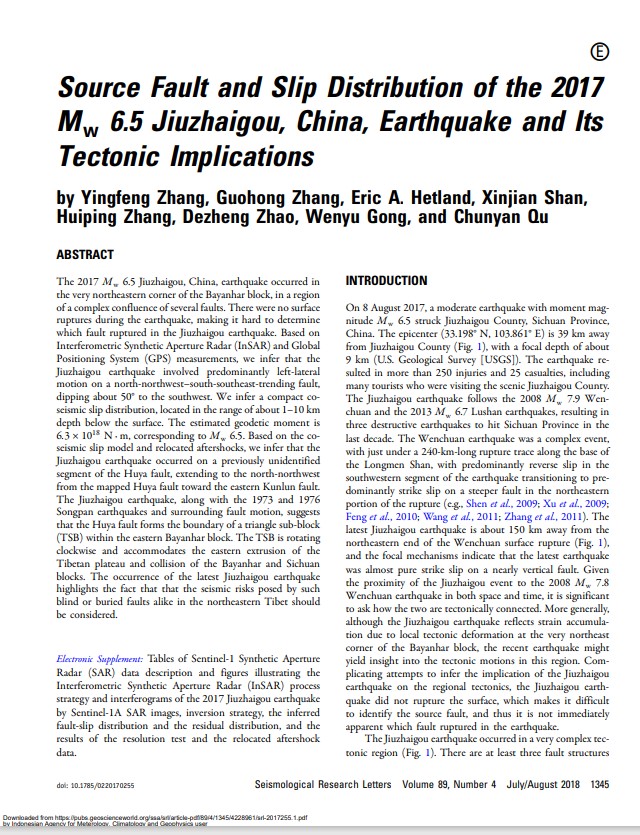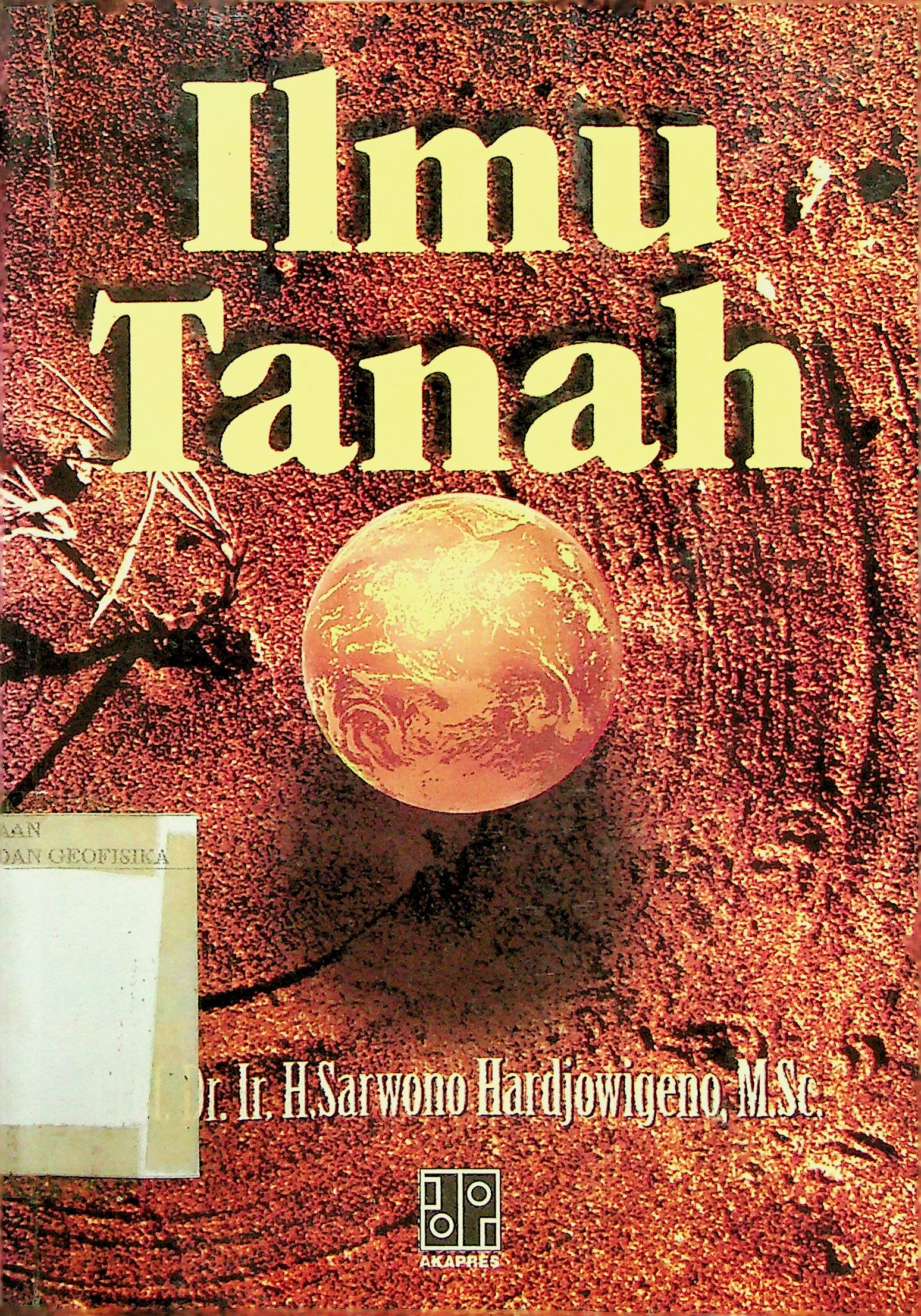The 2017 Mw 6.5 Jiuzhaigou, China, earthquake occurred in the very northeastern corner of the Bayanhar block, in a region of a complex confluence of several faults. There were no surface ruptures during the earthquake, making it hard to determine which fault ruptured in the Jiuzhaigou earthquake. Based on Interferometric Synthetic Aperture Radar (InSAR) and Global Positioning System (GPS) measurements, we infer that the Jiuzhaigou earthquake involved predominantly left-lateral motion on a north-northwest–south-southeast-trending fault, dipping about 50° to the southwest. We infer a compact co seismic slip distribution, located in the range of about 1–10 km depth below the surface. The estimated geodetic moment is 6:3 × 1018 N · m, corresponding to Mw 6.5. Based on the co seismic slip model and relocated aftershocks, we infer that the Jiuzhaigou earthquake occurred on a previously unidentified segment of the Huya fault, extending to the north-northwest from the mapped Huya fault toward the eastern Kunlun fault. The Jiuzhaigou earthquake, along with the 1973 and 1976 Songpan earthquakes and surrounding fault motion, suggests that the Huya fault forms the boundary of a triangle sub-block (TSB) within the eastern Bayanhar block. The TSB is rotating clockwise and accommodates the eastern extrusion of the Tibetan plateau and collision of the Bayanhar and Sichuan blocks. The occurrence of the latest Jiuzhaigou earthquake highlights the fact that that the seismic risks posed by such blind or buried faults alike in the northeastern Tibet should be considered
5
Source Fault and Slip Distribution of the 2017 Mw 6.5 Jiuzhaigou, China, Earthquake and Its Tectonic Implications
Yingfeng Zhang, Guohong Zhang, Eric A. Hetland
Penerbit :
Seismological Research Letters
Tahun :
2018
epaper
Geofisika
-
No Scan-
-
No Klasifikasidoi: 10.1785/0220170255
-
ISBN-
-
ISSN-
-
No Registrasi-
-
Lokasi TerbitUSA
-
Jumlah Hal9
-
Label-
-
Versi DigitalTIDAK
-
Versi FisikTIDAK
-
Lokasi Rak Buku Fisik//
-
Jumlah Exemplar Fisik Tersedia-




